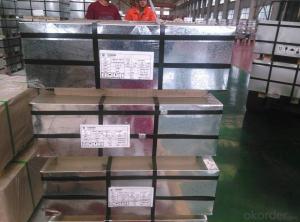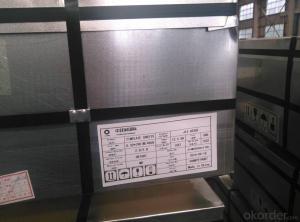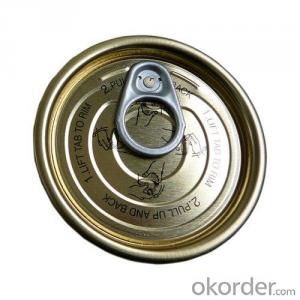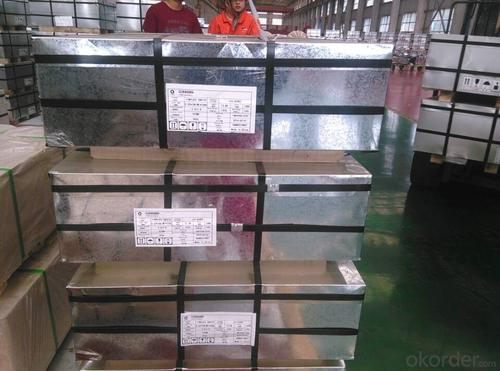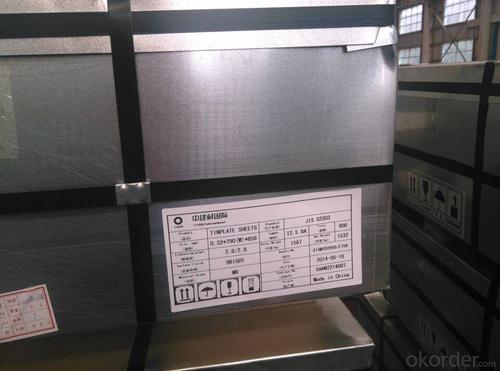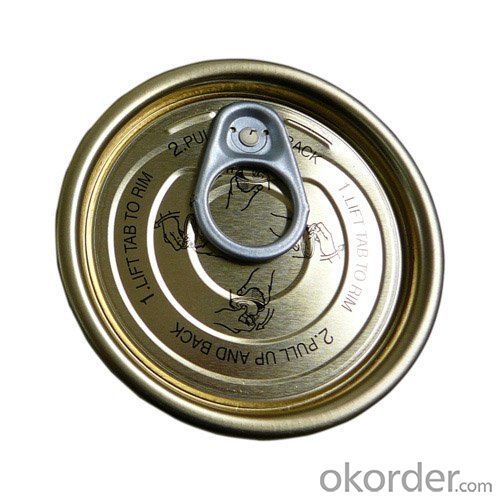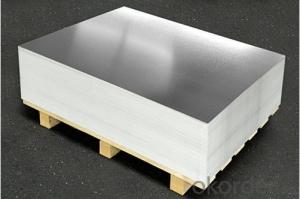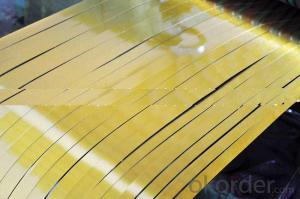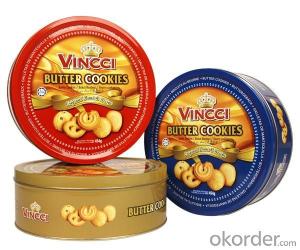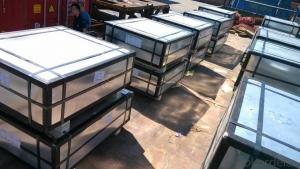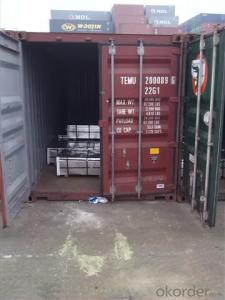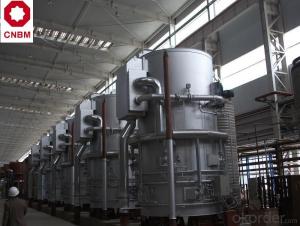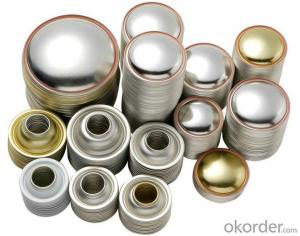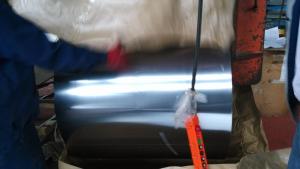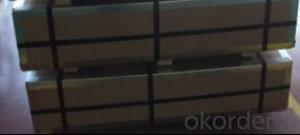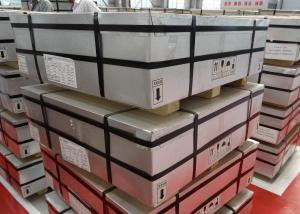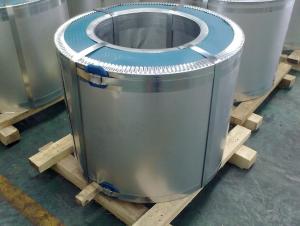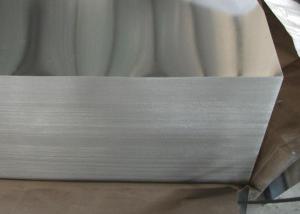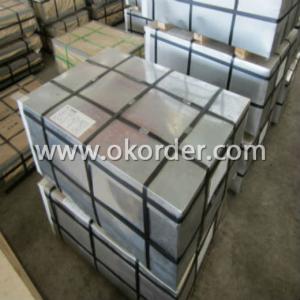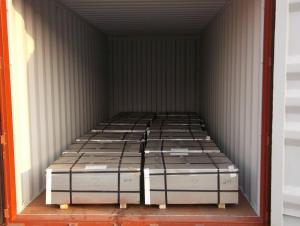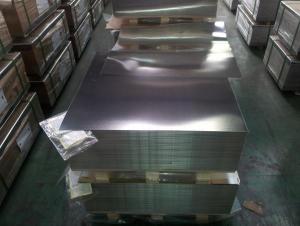SPCC/MR Material Tinplate for Chemical Usage
- Loading Port:
- Tianjin
- Payment Terms:
- TT OR LC
- Min Order Qty:
- 25 m.t.
- Supply Capability:
- 40000 m.t./month
OKorder Service Pledge
OKorder Financial Service
You Might Also Like
1.Usage
Tinplate is widely used for making all types of containers, such as paint can, oil can, aerosol cans etc., and food cans like milk powder cans, tomato paste can, dry food cans etc.
2. Specification
standard: GB/T2520, JIS G3303, DIN EN10202
Material: MR /SPCC
Thickness available: 0.16-0.50MM
Width available: 600~1050MM
Temper grade: T1 – DR8
Tin coating: 1.1g/m2~5.6g/m2
Package: sea worthy export package.
Applications: Tin can for chemicals & paint cans, industrial cans, food cans
3. Our factory photo

4. Our Markets:
now our tinplate has been sold to more than 50 countries, including Europe country, Gulf Area, South American, South Afric etc.
5. FAQ
a. what's the annual output?
about 500,000 tons per year, both BA&CA, SR&DR, thickness 0.17~0.50mm, temepr T1~DR8
b. where's the raw matrial from?
our hot rolled coil is purchased from Bao Steel, Capital Steel etc.
c. how long is the delivery time?
normally for SPCC about 45~55 days, while 65~75 days for MR material
d. how to control the quality during production process?
inside our workshop, we have MES syestem. It realizes the optimization of the production procedure in the workshop. It could record each step of the whole production procedures, and if some problem appears, factory could easily found and take action, it’s quite helpful to monitor and control the quality.
- Q: Can tinplate be used for packaging tobacco products?
- Yes, tinplate can be used for packaging tobacco products. Tinplate is a commonly used material for packaging due to its durability, resistance to corrosion, and ability to preserve the quality of the tobacco. It also provides a convenient and attractive packaging solution for consumers.
- Q: What are the regulations regarding tinplate packaging?
- The regulations regarding tinplate packaging vary depending on the country and the specific product being packaged. However, some common regulations include restrictions on the use of certain chemicals in the coating of tinplate, requirements for labeling and product information, and guidelines for food safety and hygiene. It is important for manufacturers and distributors to familiarize themselves with the specific regulations in their target market to ensure compliance.
- Q: What are the common defects in tinplate?
- Some common defects in tinplate include rust spots, black specks, pinholes, and uneven coating.
- Q: How does tinplate contribute to the safety of aerospace components?
- Tinplate contributes to the safety of aerospace components by providing a protective barrier against corrosion and oxidation. This helps to preserve the integrity and longevity of these components, reducing the risk of failure or malfunction during flight. Additionally, the smooth and uniform surface of tinplate reduces friction and wear, ensuring optimal performance and reliability in critical aerospace applications.
- Q: What is the use of tinplate printing tin, storage of food safety
- Tinplate was first imported into China from abroad. It is a kind of iron with better quality and is made of extremely thin iron sheet
- Q: Can tinplate be used for packaging hazardous materials?
- Yes, tinplate can be used for packaging hazardous materials. Tinplate is a type of steel coated with a thin layer of tin, providing excellent resistance against corrosion and creating a protective barrier. This makes it suitable for containing and transporting hazardous materials safely, as it helps prevent leaks or contamination. Additionally, tinplate is also recyclable, making it an environmentally friendly choice for packaging hazardous substances.
- Q: What are the main trends in tinplate packaging?
- The main trends in tinplate packaging include a shift towards sustainable and eco-friendly options, increased customization and personalization, advancements in technology for improved production processes, and a growing demand for convenience and functionality in packaging design.
- Q: Is tinplate safe for contact with skin?
- Yes, tinplate is generally considered safe for contact with skin. It is commonly used in various products, such as jewelry, cosmetics, and packaging, without causing any significant harm or irritation to the skin. However, some individuals may have specific allergies or sensitivities to tin, so it is always advisable to check for any potential reactions before prolonged or extensive contact.
- Q: What are the different ways to customize tinplate packaging?
- There are several ways to customize tinplate packaging. Some common methods include printing or embossing designs or logos directly onto the tinplate, applying decals or labels, using different colors or finishes, adding metallic or matte effects, and incorporating additional elements like windows or handles. These customization options allow businesses to create unique and visually appealing tinplate packaging that aligns with their brand identity and stands out on the shelves.
- Q: Can tinplate be used in extreme temperatures?
- Yes, tinplate can be used in extreme temperatures. It is known for its excellent resistance to high and low temperatures, making it suitable for various applications in extreme environments.
Send your message to us
SPCC/MR Material Tinplate for Chemical Usage
- Loading Port:
- Tianjin
- Payment Terms:
- TT OR LC
- Min Order Qty:
- 25 m.t.
- Supply Capability:
- 40000 m.t./month
OKorder Service Pledge
OKorder Financial Service
Similar products
Hot products
Hot Searches
Related keywords
